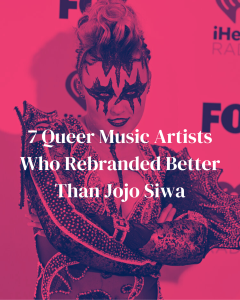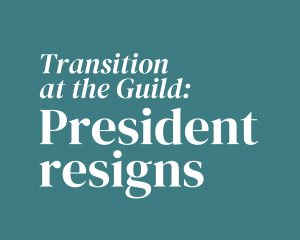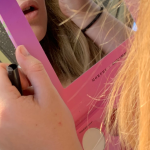
A recent public services shakeup in the Federal Government shuffled the Department of Communications and the Arts into the Department of Infrastructure, Transport, Regional Development and Communications. Note: no Arts. So, what does this mean for Australia’s creative sector? Specifically, what does it mean for Arts Students?
It’s been a tough few months for my career field. I study Fine Arts (Professional and Creative Writing) and have seen a steady decline in funding and support from the Federal Government and the Australian Council for the Arts. Island Magazine, Overland and The Suburban Review have all lost out on the next round of four-year funding from the federal arts body. These literary journals are some of the pillars of Australian literary culture; I would go so far as to credit them to why I chose to study my degree in the first place.
Then came the news that the Morrison Government was combining the Department of Communications and the Arts with other departments, becoming the Department of Infrastructure, Transport, Regional Development and Communications. ‘The Arts’ part of the department has ceased to exist, prompting outrage from artists and arts organisations across the country. The changes, set to take effect on 1 February 2020, have been justified by the Morrison Government as a move towards “efficiency” across public service departments. Arts Minister Paul Fletcher says that the Arts sector is “business as usual,” stating that the people working on Arts policy will continue to work and that “There is no change to the Morrison Government’s strong commitment to the Arts.”
This is not the sentiment of arts organisations across the country.

The Media, Entertainment and Arts Alliance (MEAA) CEO Paul Murphy says, “The absence of the word ‘Arts’ from the new department’s title says it all.” He followed up by saying that “this government’s disdain for the Arts has reached a new low,” and that the Union’s members “will not take this lying down.” Organisations and Arts Unions have expressed their disdain for the decision amongst their members, with increasing unrest from artists across the country.
I find that the removal of ‘the Arts’ from the department title and rolling it in with roads and rail completely surmises the current sentiment of creative work in Australia. For something so vital, so important to our culture to be disregarded in this way cements that the arts, one of the purest forms of free speech in this country are under attack. Of course, Arts can exist without funding, however, the fact of the matter is that no other industry that affects the public that much is asked to create without funding. Although the current government perceives Arts as optional, Literary Magazines, Books, Plays, Orchestras, Films, TV Shows, Jewellery, Fashion, Photography, Visual Art, Dance, Performance Work, Writing, Music and more are nothing short of essential. They bind the creative and intellectual fibre of our society and must be protected (and funded) at all costs.
As an artist, this is daunting. As a student, this is devastating. Young people at QUT are clawing to find a foothold in an already competitive industry; this makes the challenge to fund projects and find jobs post-graduation that much more difficult. The work that QUT Creative Industries produces is incredibly valuable, winning festivals, earning publication deals and finding roles on stage and screen around the globe. Even the art that does not reach a national scale enriches our local culture and creative events, QUT Graduates are regular contributors to local open mics, exhibitions and bring the live music to our Brisbane bars. If you’ve engaged with the creative arts in the last year, I guarantee a QUT CI students were involved in making it happen. If you’re a numbers person, the figures speak for themselves, “The Department of Communications and the Arts’ statistics show Australia’s creative and cultural activity contributes more than $111 billion (a 6.4 % share of our GDP) and employs close to 600,000 people (5.5% of the workforce) says the Australian Academy of the Humanities.
Talking to my colleagues in the Creative Industries Faculty at QUT, I found that plenty of them have strong thoughts on the change. Instead of summarising their views, here they are below verbatim:
“At a time of major competition for Australian artists, cultural producers and institutions—who are under pressure from unprecedented international competition—the arts sector acutely needs increased strategic engagement and support from the government, not erasure. The arts are at the heart of Australian life; we all benefit from them every time we listen to the radio, read a book, go to the movies, or attend performing arts performances, opera, dance, museums and galleries. The decision to exclude the term ‘arts’ from the department’s title is concerning; it communicates disdain and disinterest for a sector that all Australians cherish and enjoy every day. Additionally, the decision to roll the arts into a department overseeing roads, rail, infrastructure, and regional development suggests a utilitarian mindset – but the arts are valuable precisely because they are oriented away from utilitarianism. The arts are not instrumental and functional; instead, they feed our intellectual life with pleasure, joy, and provocation. The government of an advanced and prosperous nation like Australia should acknowledge and celebrate the vital role the arts plays in the lives of all its citizens, not relegate the arts to obscurity. “
Dr Sarah Holland-Batt Associate Professor, School of Creative Writing
“This departmental merger is an absolute spit in the face to tens of thousands of Australian workers within a $111 Billion industry and yet another indication of how uncultured and out of touch this Government is. The ‘Arts’ have always been a form of pure free speech, often expressing the early agitation of a disenfranchised and frustrated population, which is exactly why I can see the Morrison Government trying to stifle this industry. Luckily, artists are some of the most resilient people I know and will always find a way to fight back…with or without the Government’s help.”
Billie Schneider Bachelor of Creative Industries (Entertainment)
“Axing the federal arts department is nothing short of idiotic and outrageous. Not only is it a hundred billion dollar industry that boosts our economy, but it is also what fuels our culture and attraction for overseas visitors. On a personal level, it scares me that the person in charge is making budget cuts all over the place to departments that the public have openly said are important to them. It almost feels as though he does these things out of spite. Cutting the arts will be a huge mistake and Australia will absolutely suffer from it.”
Red Hitzke Bachelor of Fine Arts (Music), QUT Guild Creative Industries Councillor

“The arts have the liveliness, passion, brutal honesty and dynamism our Prime Minister and government lacks. Arts and the arts community are one of few things that pave a future where we aren’t choking on smoke, ignorance and the uninformed delusion that climate change is a scam. Our environment, economy and livelihood desperately need arts in order to thrive and remain sustainable. This is one of many reasons why we must give the arts all the ammunition we can. We need creative minds coming together in the ways we already know best, to create and re-image a sustainable and inclusive future, one our government is somehow clueless of. Not only that but, seriously Mr Morrison, what is life without good influential art? And lots of it.”
Sofija Piletic Bachelor of Fine Arts (Creative Writing)
“The folding of the Department of Arts in the government is probably one of the most disappointing pieces of news to hear as an art student myself. I personally could see that the arts in the social culture of Brisbane was on the rise. With more people being interested in how art can be viewed and appreciated. It’s truly sad to see the department fold, the arts have had a rich history in political views and objections through the performance of the arts. I personally view arts as a gateway for someone’s raw freedom of political communication. However, as an industry, the general voice of disagreement in choices that affect the arts is defiantly not as loudly heard as other industries. As an industry we need to publicly voice our opinions on how the art industry is conducted and hope for a Department of Arts that can make a greater impact on the country.”
Kalvin Crawforth Bachelor of Design (Interactive and Visual Design & Media and Communications)
“The dissolving of the Department will have a hugely detrimental effect on my arts career and those of my peers. Particularly in the poetry slam and workshop scenes, funding is already super tight as it is and this action sets a dangerous precedent that arts is just not that important anymore. This of course couldn’t be further from the truth. Arts communities are at the very core of our Australian identity. As an emerging poet seeking future publication, it’s worrying to think how many journals and magazines may be forced to fold as a direct effect of this dissolve. Our options will surely shrink around us. But I trust our artists will not let this stop us. We’ll do what we’ve always done: make great art out of awful circumstances.”
Sean West Graduate, Poet
“The true purpose of the Arts, in particular Arts education is not necessarily to create professional dancers, artists, designers, musicians or filmmakers. It’s to create more complete human beings who are critical thinkers, who have curious minds and who lead productive lives. And this isn’t a frivolity. At its core, the Arts are a powerful way of forming community, understanding identity, expressing complex and diverse ideas. Most importantly, the Arts department recognises and values the talents of Aboriginal artist and acknowledges the depth and diversity of Aboriginal cultures. By joining the Federal Arts department with a broad range of unrelated departments, the Arts have been treated as though they are merely leisure activities, a luxury for the elite or entertainment in the most reductive sense of the word, a value-free product.”
Isabella Stewart Bachelor of Business, Bachelor of Creative Industries (Fashion)
What are your thoughts on the announcement?







